Contact Us
CEHS Staff Contacts
If you have questions about becoming a CEHS member or would like to be added to our email listserv, please contact:
Michael Sanderson, Associate Director
michael_sanderson@unc.edu
If you have financial questions related to the use of pilot project funds, travel reimbursements, or rapid response awards, please contact
Center Leadership:
Melissa Troester, Ph.D., Center Director
troester@unc.edu
Center Staff
The Administrative Core of the CEHS provides administrative and scientific leadership, manages Center finances and resources to facilitate research related to our three focus areas, and supports activities in the Career Development Program, the Pilot Projects Program, Facility Cores, and the Community Engagement Core.
 Melissa Troester, Director
Melissa Troester, Director
troester@unc.edu
Melissa Troester, Ph.D., is Center Director. The Troester laboratory studies breast cancer and benign breast disease using genomic, molecular pathology, and epidemiologic approaches. Much of Dr. Troester’s research focus has been on understanding interactions between the environment and breast genomics. She is Co-Principal Investigator on the Carolina Breast Cancer Study (CBCS), a study of breast cancer epidemiology and biology focused on understanding breast cancer disparities and she is Co-Leader of the Lineberger Comprehensive Cancer Center’s Cancer Epidemiology program. She has extensive experience working in consortia, including the African American Breast Cancer Epidemiology and Risk (AMBER) consortium, the Breast Cancer Association Consortium (BCAC), and the Cancer Genome Atlas project. In the TCGA, she led analyses of benign breast genomics. A common theme throughout her work is integrating genomic data and molecular biology with human studies of breast cancer etiology and progression.
 Stephanie Engel, Deputy Director and Co-Leader of Healthy Development and Aging
Stephanie Engel, Deputy Director and Co-Leader of Healthy Development and Aging
Stephanie.Engel@unc.edu
Dr. Engel, Ph.D., is the Deputy Director and Research Director of the developmental disease research theme for the CEHS. She has led multiple national and international studies of maternal and child epi/genetic variability in relation to prematurity, growth restriction, preeclampsia and gestational hypertension. Her research is at the interface of innate and exogenous exposures during the prenatal and early childhood periods, and how they work together to influence the development of the child. She has ongoing projects in the area of maternal and fetal genetic, epigenetic, and metagenomic variation and pregnancy outcome, and the relationship of prenatal environmental exposures with childhood neurodevelopmental impairments such as ADHD. Many of the environmental exposures she studies are over-represented in minority and low income populations, which leads to the potential for unique susceptibilities in high risk communities.
 Michael Sanderson, Associate Director
Michael Sanderson, Associate Director
michael_sanderson@unc.edu
Michael Sanderson, MPH, is the CEHS Associate Director. He oversees and manages administrative and research activities, including promoting and fostering new CEHS research collaborations, supporting research and programmatic activities, and encouraging pilot project development. His interests center on the coordination and translation of research to practice – creating and maintaining high quality public health services and environments. Michael’s professional experience has included work with local and state agencies as well as in the non-profit sector. He has served on and led many state level advisory teams and work groups advancing the health and health care of North Carolinians.
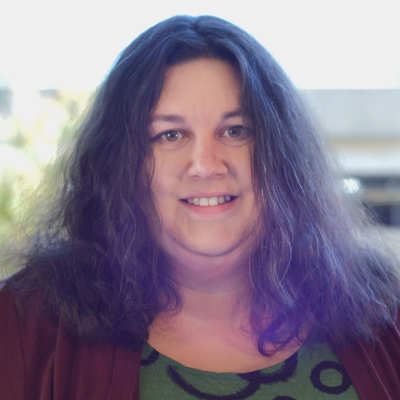 Laura Dunn, Research Specialist
Laura Dunn, Research Specialist
laura_dunn@med.unc.edu
Laura Dunn is the Research Specialist for the CEHS, and Dr. Troester’s Executive Assistant. She provides administrative and research support for the pursuits of the Center, including seminar planning, publications and grant support, and meeting coordination. Laura received her undergraduate degrees from NC State University, and is a certified professional medical biller. Her professional experience includes the management of an accreditation and licensing test center, administrative work for private psychiatry practice, and work with Duke Pediatrics.
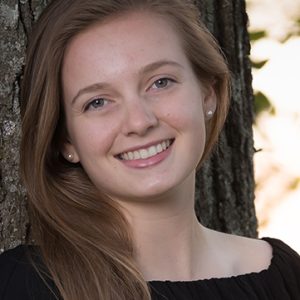 Georgia Mudd, Research Program Assistant
Georgia Mudd, Research Program Assistant
gmudd@unc.edu
Key Faculty
 Melissa Troester, Director
Melissa Troester, Director
troester@unc.edu
Melissa Troester, Ph.D., is Center Director. The Troester laboratory studies breast cancer and benign breast disease using genomic, molecular pathology, and epidemiologic approaches. Much of Dr. Troester’s research focus has been on understanding interactions between the environment and breast genomics. She is Co-Principal Investigator on the Carolina Breast Cancer Study (CBCS), a study of breast cancer epidemiology and biology focused on understanding breast cancer disparities and she is Co-Leader of the Lineberger Comprehensive Cancer Center’s Cancer Epidemiology program. She has extensive experience working in consortia, including the African American Breast Cancer Epidemiology and Risk (AMBER) consortium, the Breast Cancer Association Consortium (BCAC), and the Cancer Genome Atlas project. In the TCGA, she led analyses of benign breast genomics. A common theme throughout her work is integrating genomic data and molecular biology with human studies of breast cancer etiology and progression.
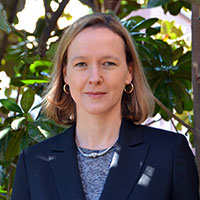
Rebecca Fry, Associate Director of Translational Research
rfry@email.unc.edu
Rebecca Fry, Ph.D., is the Associate Director of Translational Research. She directs the UNC-supported Institute for Environmental Health Solutions, an institute focused on promoting engineering solutions to specific environmental health problems. With a particular focus on genomic and epigenomic perturbations, her labs uses toxicogenomic and systems biology approaches to identify key molecular pathways that associate environmental exposure with diseases. A current focus is prenatal exposure to various environmental contaminants including arsenic, cadmium, and perflourinated chemicals. In her role as CEHS Associate Director for Research Translation, Dr. Fry will serve on the Executive Committee and Internal Advisory Committee to help direct the center and support its translational theme. She will identify opportunities to align CEHS activities with Superfund Research center activities, and will strategically address inclusion of CEC activities in all CEHS functions. She will participate in the Environmental Science Working Group, organized by the North Carolina Translational and Clinical Sciences (NC TraCS) Institute, a clinical research center that unites UNC scientists across many disciplines. She will assist with organizing research presentations at scientific retreats sponsored by the Center.
 Stephanie Engel, Deputy Director and Co-Leader of Healthy Development and Aging
Stephanie Engel, Deputy Director and Co-Leader of Healthy Development and Aging
Stephanie.Engel@unc.edu
Dr. Engel, Ph.D., is the Deputy Director and Research Director of the developmental disease research theme for the CEHS. She has led multiple national and international studies of maternal and child epi/genetic variability in relation to prematurity, growth restriction, preeclampsia and gestational hypertension. Her research is at the interface of innate and exogenous exposures during the prenatal and early childhood periods, and how they work together to influence the development of the child. She has ongoing projects in the area of maternal and fetal genetic, epigenetic, and metagenomic variation and pregnancy outcome, and the relationship of prenatal environmental exposures with childhood neurodevelopmental impairments such as ADHD. Many of the environmental exposures she studies are over-represented in minority and low income populations, which leads to the potential for unique susceptibilities in high risk communities.
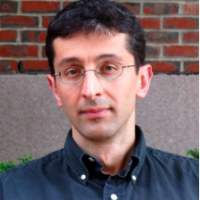 Cyrus Vaziri, Research Director for Environmental Cancer
Cyrus Vaziri, Research Director for Environmental Cancer
cyrus_vaziri@med.unc.edu
Dr. Vaziri, Ph.D., is the Research Director of the environmental cancer research theme for the CEHS. The Vaziri lab seeks to address two related problems in the area of environmental cancer: (1) How do neoplastic cells alter their genomes during carcinogenesis? and (2) How do pre-neoplastic cells tolerate the intrinsic DNA damage and replicative stresses associated with carcinogenesis? Trans-Lesion Synthesis (TLS) is an error-prone (mutagenic) and damage-tolerant mode of DNA synthesis. The Vaziri team has shown that TLS is pathologically-activated in cancer cells and confers tolerance of oncogene-induced DNA replication stress. Thus, pathological TLS provides a new mechanism for sustaining viability of neoplastic cells while simultaneously causing the mutations that drive tumor progression. Cancer cells depend heavily on DNA damage tolerance and mutagenesis to adapt and resist therapy. Therefore, an important byproduct of the selective pressure for TLS-mediated DNA damage tolerance during tumorigenesis is emergence of chemoresistant cancer cells. Pathological TLS represents a molecular vulnerability and an appealing therapeutic target whose inhibition will sensitize tumors to intrinsic or therapy-induced DNA damage.

Ilona Jaspers, Research Director for Cardiopulmonary Disease
ilona_jaspers@med.unc.edu
Ilona Jaspers, Ph.D., is the Research Director of the cardiopulmonary research theme for the CEHS. She is a Professor at the University of North Carolina at Chapel Hill (UNC-CH) in the Department of Pediatrics with joint appointments in the Departments of Microbiology and Immunology as well as Environmental Sciences and Engineering. Dr. Jaspers has a long-standing interest in the adverse health effects induced by pollutant exposures. She collaborates extensively with investigators from UNC-CH and the U.S. Environmental Protection agency to conduct translational studies related to air pollution health effects. Research in Dr. Jaspers’ laboratory focuses on the mechanisms by which exposure to air pollutants such as ozone, woodsmoke, cigarette smoke, and e-cigarettes modifies host defense responses, using translational human in vitro and in vivo models. As the Director of the Curriculum in Toxicology, Dr. Jaspers also oversees the training and mentorship of graduate students and postdoctoral fellows.
 Folami Yetunde Ideraabdullah, Research Director for Healthy Development and Aging
Folami Yetunde Ideraabdullah, Research Director for Healthy Development and Aging
folmai@email.unc.edu
Folami Ideraabdullah, PhD will attend monthly one-hour internal advisory committee meetings and one annual CEHS symposium (as calendar permits), and will work with other IAC leaders to develop CEHS research teams, identify opportunities and challenges, and to describe successes in their assigned research themes. Dr. Ideraabdullah has formal training and extensive expertise in mouse genetics and developmental epigenetics. As an Assistant Professor in the Genetics and Nutrition Departments, her research program integrates genetics, epigenetics, nutrition, and toxicology to investigate mechanisms of epigenetic perturbation during development that lead to persistent, chronic, and/or multi-generational diseases.
 Kathleen Gray, Director of the Community Engagement Core
Kathleen Gray, Director of the Community Engagement Core
kmgray@email.unc.edu
Kathleen Gray, Ph.D., is the Director of the Community Engagement Core (CEC) in the Center for Environmental Health and Susceptibility. Her research focuses on environmental health literacy, science communication and community and stakeholder engagement. In 2015, Dr. Gray was awarded the Office of the Provost Engaged Scholarship Award for Partnership, one of UNC’s highest public service honors, in recognition of a longstanding collaboration with a regional environmental nonprofit and a county park to inform vulnerable populations about the risks of consuming contaminated fish. Within the UNC Institute for the Environment, she manages the Center for Public Engagement with Science, which enhances public understanding of current environmental science and health research and its relevance to daily life. She has over 20 years’ experience conducting environmental health education with community audiences and assisting businesses and government agencies in making sustainable choices. Prior to joining UNC, she led a statewide assessment of NC’s recycling industry, advised over 300 businesses in expanding their use of environmentally responsible products and services, developed and evaluated educational materials for EPA’s voluntary environmental programs, and managed a community-focused environmental health internship program at Vanderbilt University.
 Terry Noah, Director of Training and Career Development
Terry Noah, Director of Training and Career Development
terry_noah@med.unc.edu
Terry L. Noah, MD is Director of the CEHS Career Development Core. Dr. Noah is Professor and Senior Vice Chair in the Department of Pediatrics, UNC School of Medicine. He is also Chief of the UNC Pediatric Pulmonology Division Dr. Noah is an investigator in the CEHS Cardiopulmonary Translational Research group and has led CEHS-supported research projects on the effects of diesel exhaust on respiratory viral infection, and a multidisciplinary project on acute smoke inhalation. His research focus in recent years has been on the effects of environmental pollutants on respiratory viral infections, particularly RSV and influenza; past research has also involved translational and clinical studies in cystic fibrosis and childhood asthma. He has had longstanding research funding from NIH and has served on multiple NIH ad hoc study sections.
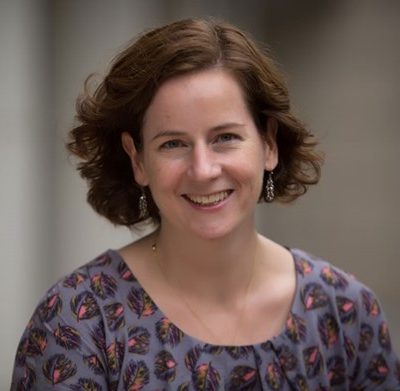 Hazel Nichols, Director of the Integrative Health Sciences Core and Pilot Projects Director
Hazel Nichols, Director of the Integrative Health Sciences Core and Pilot Projects Director
hbn@email.unc.edu
Hazel Nichols, Ph.D., is the Director of the Integrated Health Sciences Core at CEHS and Pilot Projects Director. Her interests focus on focused on improving cancer care by providing sound epidemiologic evidence to guide personal and medical decision-making around cancer risk and survivorship. Her current studies investigate experiences and health outcomes after endometrial and adolescent and young
adult cancers.
 Kun Lu, Director of the Molecular Analysis Facility Core
Kun Lu, Director of the Molecular Analysis Facility Core
kunlu@unc.edu
Kun Lu, Ph.D., is the Director of the CEHS Molecular Analysis Facility Core. The overarching goal of Dr. Lu’s lab is to better understand health effects of environmental exposure and individual response by integrating the microbiome, exposome, omics profiling, and biomarker development. Dr. Lu’s lab is working on a number of important environmental chemicals ranging from heavy metals to pesticides, as well as others with significant public health concerns. The current emphasis is being placed on microbiome research and exposome mapping. Dr. Lu’s lab aims at answering how gut microbiome interacts with environmental exposure, how gut microbiome affects disease susceptibility, and how host factors crosstalk with microbiome to influence its response. Another focus of Dr. Lu’s lab is to map exposome for human disease, with the goals of characterizing all exposures over the lifespan via high-resolution mass spectrometry, understanding the health impact of the exposome, and designing strategies to reduce exposure-associated adverse effects.
 Haibo Zhou, Director of the Biostatistics and Bioinformatics Core
Haibo Zhou, Director of the Biostatistics and Bioinformatics Core
zhou@bios.unc.edu
Haibo Zhou,Ph.D., is the Director of the Biostatistics and Bioinformatics Core. He is well-known for his biostatistical research in environmental statistics, outcome-dependent sampling, survival analysis, measurement error problems and reproductive epidemiology. Dr. Zhou has served as PI on four NIH-funded R01 grants on statistical methodology research in outcome-dependent sampling design. He has had outstanding collaborative experiences with researchers at UNC, NIEHS and EPA on important health studies. His outcome-dependent sampling research is focused on developing innovative and cost-effective sampling designs that will enable investigators to collect more informative samples at a fixed budget.
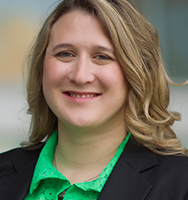 Katherine Hoadley, Co-Leader, Environmental Cancer
Katherine Hoadley, Co-Leader, Environmental Cancer
Katherine Hoadley, PhD is Assistant Professor of Genetics, and has primarily focused her research on understanding the biology of cancer through genomic approaches, in large part through her work as a member of The Cancer Genome Atlas (TCGA) project. Dr. Hoadley will work with Cyrus Vaziri to co-lead the Environmental Cancer program, specifically seeking to translate basic research to human data, including public genomic data and UNC-specific genomic data. She will attend monthly one-hour internal advisory committee meetings and one annual CEHS symposium (as calendar permits).
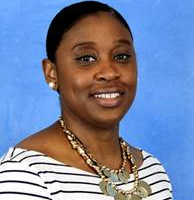 Chantel Martin, Co-Leader Cardiopulmonary Disease Translational Research
Chantel Martin, Co-Leader Cardiopulmonary Disease Translational Research
Chantel Martin, PhD will attend monthly one-hour internal advisory committee meetings and one annual CEHS symposium (as calendar permits), and will work with other IAC leaders to develop CEHS research teams, identify opportunities and challenges, and to describe successes in their assigned research themes. Dr. Martin as formal training and extensive expertise in epidemiologic methods and social and disparities epidemiology, and has studied cardiopulmonary outcomes in association with metal exposures.
Stakeholder Advisory Board
The CEHS Community Engagement Core convenes a Stakeholder Advisory Board (SAB) twice per year to share emerging research, to solicit feedback on research and outreach applications, and to have SAB members share highlights of their work and identify important issues facing North Carolina residents. To facilitate greater dialogue and collaboration, we meet with smaller groups of SAB members on specific translational research activities.
 Nellie Benitez
Nellie Benitez
Outreach Coordinator, Chatham County Public Health Department, Environmental Health Division
Nellie Benitez has been a Chatham County employee for 15 years. Nellie was named the Chatham County Public Health Department Employee of the Year in 2008. She has worked in the Environmental Health Division as a Community Social Services Technician since 2010. Previously, Nellie served as a board member for Smart Start. She currently works with two programs for the county; the N.C. Childhood Lead Poisoning Prevention Program (NC CLPPP) and Focus on Fathers. The goals of these two programs are to do outreach and surveillance in an effort to reduce the incidence of childhood lead poisoning and increase family and life-skills competencies in young fathers to prepare them for a life-long role of mentoring their children and their peers.
 Max Cawley
Max Cawley
Program Manager, Museum of Life and Science
Max Cawley is the Program Manager for Public Engagement with Science at Museum of Life & Science in Durham, NC, a role that includes that of an educator, researcher, evaluator, and science communicator. In addition to his work at the museum, Cawley is a Community Science Fellow in the American Geophysical Union (AGU)’s Thriving Earth Exchange and a graduate student in NCSU’s School for Marine, Earth, and Atmospheric Sciences. He believes that more equitable, robust, and just public engagement around climate literacy is key to maintaining a healthy democracy in a warming world.
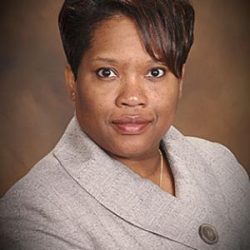 Marilynn Marsh-Robinson
Marilynn Marsh-Robinson
Senior Manager for Partnerships and Outreach, Environmental Defense Fund
Marilynn Marsh-Robinson is the Partnerships and Alliances Manager at the Environmental Defense Fund (EDF). She is responsible for identifying and building symbiotic relationships with potential partners and for leading aspects of EDF’s zero-emission vehicle transportation strategy, organizing the deployment of zero-emission vehicles in North Carolina. In addition to her work at EDF, Marilynn serves on the NC Department of Environmental Quality’s Environmental Justice and Equity Advisory Board and on the planning committee of NC Environmental Justice Network. She previously served on the North Carolina Conservation Network board.
 Ed Norman, MPH
Ed Norman, MPH
Program Manager, NC Division of Public Health, Environmental Health Section
Ed Norman has more than 25 years of experience working in public health and environmental regulatory programs. After earning a Chemistry degree from Duke University and his Master’s in Public Health from the University of Michigan, he became an Epidemiologist with the N.C. Childhood Lead Poisoning Prevention Program in 1990. Since that time, he has conducted lead investigations, analyzed blood lead and environmental data, published research on these data, implemented grants from the CDC, EPA and HUD and managed the state program for the last 20 years. Through the years, he has also administered the child care and school sanitation programs. In 2011, the Environmental Health agency was reorganized and now includes the EPA-authorized Asbestos and Lead-Based Paint Programs under Mr. Norman’s management. He’s also a pretty good old-time and bluegrass musician!
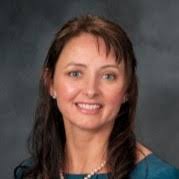 Melinda Shuler, MHS, RRT, RCP, CTTS, HHS, AE-C
Melinda Shuler, MHS, RRT, RCP, CTTS, HHS, AE-C
Director of Quality Management, Cherokee Indian Hospital
Member, Asthma Alliance of North Carolina
Melinda Shuler is a respiratory care practitioner and the Director of Quality Management for Tribal Option at Cherokee Indian Hospital in Cherokee, NC. Melinda develops the necessary infrastructure and reporting processes to meet the requirements set by the NC Division of Medical Assistance. Prior to her work at Cherokee Indian Hospital, she spent 25 years at Mission Children’s Hospital in Asheville, NC, where she served as the Regional Clinical Supervisor of the Regional Asthma Disease Management Program (RADMP). In this role, she created a national resource network to address the social determinants of underserved asthmatic families. Melinda has a master’s degree in Health Science from Western Carolina University.
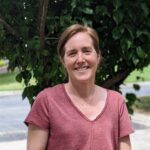 Jacqueline Simmons, MScPH, MCHES
Jacqueline Simmons, MScPH, MCHES
Project Director, North Carolina Child Care Health and Safety Resource Center
Jacqueline “Jacquie” Simmons is Project Director for the NC Child Care Health and Safety Resource Center, an agency that promotes public health strategies to protect children in early education settings. She specializes in health promotion and injury prevention of young children. Prior to her current role, Jacquie held positions at the NC Office of Disability and Health, the NC Healthy Start Foundation, and at Safe Kids Worldwide in Washington, DC. She has a Master of Science in Public Health and Health Promotion from the London School of Hygiene and Tropical Medicine, a Certificate in Field Epidemiology from UNC Chapel Hill, and advanced coursework in injury prevention, epidemiology, and biostatistics from the Johns Hopkins Graduate Institute of Epidemiology and Biostatistics.
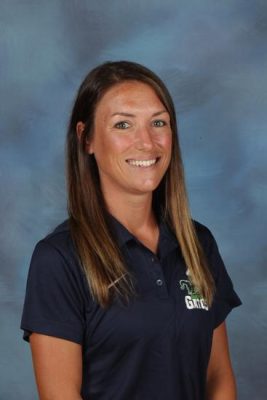
Taryn Strickland, MA
Head Athletic Trainer and Teacher, Green Level High School
Taryn Strickland is the Head Athletic Trainer and a physical education teacher at Green Level High School in Cary, NC. In her training role, she manages the sports medicine staff and activities, combining her passions for science, medicine and physical activity. With nearly a decade of experience as a high school athletic trainer and educator, Taryn joined the Green Level staff after working as the head athletic trainer at Cedar Ridge High School in Hillsborough, NC for seven years. She earned her undergraduate degree in Athletic Training from Colby-Sawyer College in New Hampshire before earning her master’s degree in the same field from UNC Chapel Hill. Taryn is a native of Maine and member of the National Athletic Trainers’ Association.
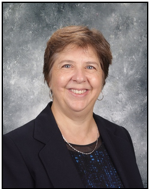 Linda Tugurian, PhD, NBCT
Linda Tugurian, PhD, NBCT
Coordinator of Secondary Programs & STEM Integration, Durham Public Schools
Linda Tugurian is the Coordinator of Secondary Programs & STEM Integration at Durham Public Schools. She has spent the past twenty-eight years in Durham Public Schools facilitating the science experience of K-12 students and educators. Her work has included curricular support and development, building partnerships with universities and STEM businesses throughout the Triangle, and teaching science and technology to adults and students. She has a Master of Science in Science and Environmental Education from Cornell University and a PhD in Science Education from NC State University.

Gina Uresti, MPA
Healthy Homes Manager, Greensboro Housing Coalition
Gina Uresti is the Healthy Homes Manager in the Greensboro Housing Coalition, a HUD-certified Housing Counseling Agency that works with individuals and families to secure safe, affordable housing. In her role, Gina connects the agency’s housing counseling and healthy housing programs with outreach to individuals and families of varied backgrounds in the community and in local schools. She also directs the work of trained staff and Greensboro area university student interns who conduct home visits to assess hazards in homes and provide advice to families. For several years, she has served in an advocacy role as an active member of the NC Lead and Healthy Homes Outreach Task Force and in meetings of the Minimum Housing Standards Commission. Gina earned her BA in Political Science and Spanish, and her Master’s degree in Public Administration from Grand Canyon University in Phoenix, Arizona.
Stakeholder Advisory Board members include representatives from:
- Asthma Alliance of North Carolina
- Chatham County Public Health Department Environmental Health Division
- Cherokee Indian Hospital
- Durham Public Schools
- Environmental Defense Fund
- Green Level High School
- Greensboro Housing Coalition
- Museum of Life and Science
- North Carolina Child Care Health and Safety Resource Center
- North Carolina Division of Public Health Environmental Health Section
Advisory Committees
External Advisory Committee
The External Advisory Committee (EAC) consists of four renowned environmental health scientists with expertise in toxicology, mass spectrometry, systems biology, genomics, pulmonary and cardiovascular disease, developmental disease, cancer, epidemiology and outreach. The EAC members, individually and as a team, provide expert opinion in areas relevant to the Center’s research and outreach activities. Members of the EAC are also called upon on an ad hoc basis to review pilot projects and other programs, as appropriate to their areas of expertise.
